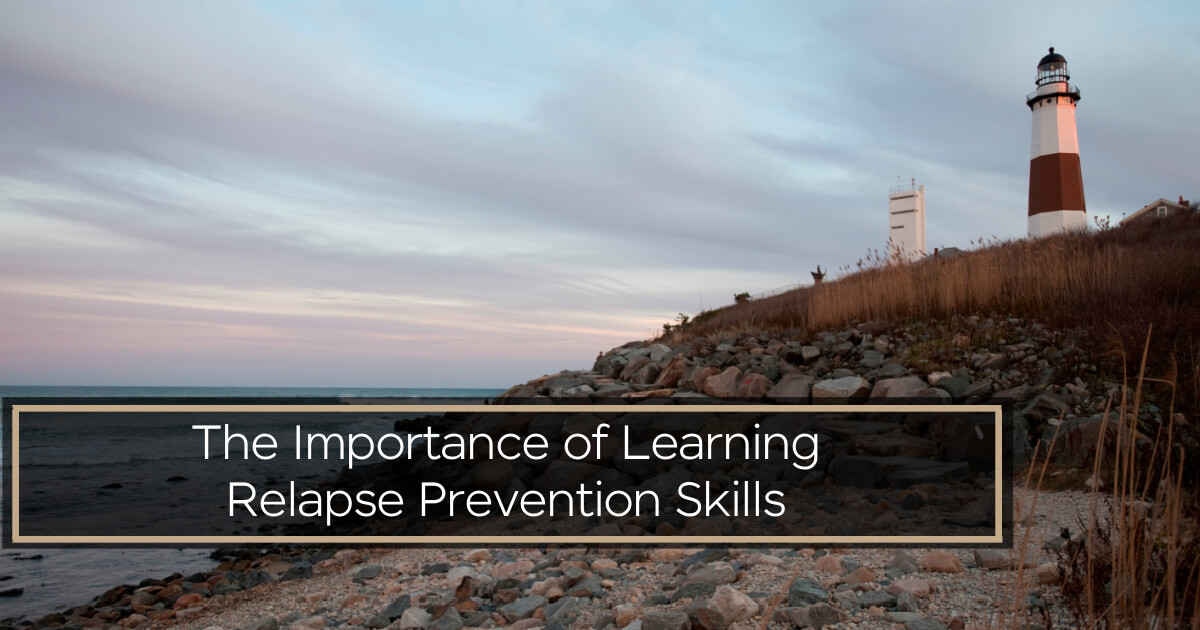Both Inpatient and outpatient treatments at an addiction treatment facility can help you break free of alcohol and drug addiction, but it’s not a cure. Substance use disorder is a lifelong condition, and there is always a risk for relapse.
Fortunately, relapse prevention strategies can aid in maintaining recovery from addiction and help to avoid relapse. Read on to learn more about the importance of relapse prevention skills and for tips on staying sober after treatment for addiction.
What Is Relapse in Addiction?
In addiction recovery, relapse is when a person returns to drug or alcohol use after a period of abstinence. Roughly 40 to 60% of people who seek treatment will experience a relapse. However, this doesn’t mean that treatment doesn’t work.
To better understand why a person with substance abuse issues faces possible relapse, you only need to look at his or her chronic health conditions. For example, roughly 50 to 70% of patients with asthma will experience a relapse of symptoms at some point during their treatment. This isn’t because the treatments are ineffective, but rather because of the environment or changes experienced within the body.
Addiction relapse is similar. After treatment, a person may have new healthy coping skills to fall back on when they experience the urge to use drugs or alcohol, but triggers may make it difficult for them to remain abstinent.
Common Relapse Triggers
An important aspect of relapse prevention is to identify potential triggers and to take appropriate steps to avoid or mitigate them. The following are some of the most common triggers:
* Stress: Many people turn to drugs and alcohol during periods of stress from work, finances, relationships, and other sources.
* Boredom: Being bored can quickly lead to feelings of listlessness and dissatisfaction and prompt a person with a substance abuse issue to look for ways to stimulate oneself or pass the time.
* Old habits and relationships: Returning to old habits or maintaining relationships with people who use drugs and/or alcohol or cause you stress, can provide fuel for a possible relapse.
* Anger: Someone with an addiction issue may turn to drugs and alcohol to soothe feelings of anger or find that their ability to make good decisions is impaired when they’re feeling angry.
Helpful Relapse Prevention Skills
Relapse prevention skills are learned actions that are useful to help prevent relapse. The following are some strategies that can be employed to reduce this risk.
Develop a Relapse Prevention Plan
A relapse prevention plan is a written set of guidelines to help substance abusers avoid a relapse and to stay sober after treatment. The plan can include:
* Making changes to trigger-type habits will typically aid in sobriety
* Limiting contact with certain people may be in order so that sobriety is maintained
* Incorporating relaxation techniques, such as deep breathing or mindfulness, into your daily routine can be a key element
* Ongoing treatment such as visiting with a mental health professional or attending support group meetings, can help avoid a relapse
* A list of people that can be trusted to provide support when contemplating a relapse can be a beneficial deterrent.
Distraction
Distracting your mind can help prevent boredom and ease stress. After treatment, find new ways to keep yourself busy. For example, taking up a new hobby or activity, such as hiking, knitting, or playing a sport, is a good way to keep your mind off of other issues.
Reach Out to Your Support System
Having a strong support system is a vital aspect of relapse prevention. Your circle may include friends and family, members of a support group and medical and mental health professionals. When you feel the urge to return to drug or alcohol use, it’s recommended to turn to your support network.
Self-Care
Taking good care of oneself helps to foster self-love and self-esteem, both of which can aid in preventing relapse. Self-care includes everything from eating well to exercising to taking breaks from work to enjoy quiet time and leisure activities.
HALT Method
The HALT Method focuses on four common relapse triggers:
* Hunger
* Anger
* Loneliness
* Tiredness
When experiencing a craving or urge to use drugs or alcohol, stop, and ask yourself if you’re experiencing any of the above feelings. If you are, then it’s best to address the feeling itself rather than abandon sobriety.
Get Help to Maintain Recovery from Addiction
If relapse seems inevitable, or there’s concern that it may be on the horizon, treatment can help. Contact The Dunes East Hampton today to begin exploring available and proven treatment options.
References:
https://nida.nih.gov/publications/drugs-brains-behavior-science-addiction/treatment-recovery
https://soledadhouse.com/relapse-prevention-skills/
https://www.addictioncenter.com/community/top-10-relapse-prevention-skills/








